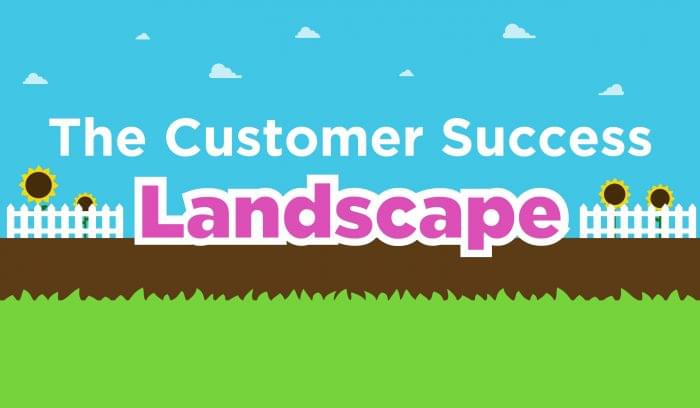The role of the customer success manager has evolved tremendously in the past few years. The goal of satisfied, successful customers has remained the same, but the number of moving parts needed to reach that goal continues to increase. From tracking performance metrics to being a knowledge expert, CSMs have to wear many hats.
At TechnologyAdvice, our CSMs help our demand generation partners — B2B technology vendors that we work with to grow their customer base. CSMs help ensure those programs run smoothly and efficiently, and that their clients reach their desired outcome.
But all customer success teams are structured differently, and there is always something new to be learned from innovators in the field. Curious, we set out to understand what it means to be a CSM today.
We began by pulling customer success contacts from our proprietary database of 46 million records. We then built a simple three-day email cadence asking for a 5-10 minute call to discuss their experience as a CSM or, if they were strapped for time, to fill out a short survey instead. The results were overwhelming — 16 phone interviews and more than 70 survey responses in a matter of weeks. We analyzed the research and laid out the findings below.
How the CSM Adds Value
There are several ways a CSM adds value to a company (their own and their clients’). Reducing churn, retaining clients, creating lasting relationships, and adding revenue, just to name a few. And while initiatives may be different from organization to organization, adding value isn’t complicated. Here is what we discovered:
1. Be the voice of the customer.
The customer is using your product or service on a daily basis so they will have a lot of feedback about what works best and what doesn’t. Some may even have wish lists about what they’d like to do with your tool or service that you may not offer already. Taking this feedback and sharing it with your team, not only helps the customer, it helps your company improve immediately and set a long-term product roadmap.
2. Be a knowledge expert.
A consultative approach is becoming more and more common among the CSM role. Being able to guide your customer by understanding their particular goals has become pivotal in retaining your customer base. Not only knowing how to use your product, but being able to teach the customer best practices will create long-term success for your customer.
3. Build trust to prevent churn.
A huge part of adding value to your company is retaining clients. Reducing churn is a big topic among customer success teams and being a dedicated resource for your customers means keeping them happy. Asking “why” rather than just saying yes to win their business will create trust with your customer in the long run.
The Most Important Customer Touchpoint
It turns out the answer to this question is — all of them. Most CSMs will begin the customer relationship with an onboarding call. This interaction is essential to not only learn more about your client and their needs but to introduce yourself and your position as a trusted resource. Gina Gonzales, a senior service consultant at Eleserv said it best, “First impressions are everything!”
While onboarding is essential, consistent, ongoing communication weighs heavy on the client relationship. In some cases, weekly check-ins may be extremely important and in other cases, less frequency will do the job. Most CSMs ask their clients to weigh in on a communications strategy, but creating a consistent cadence helps both the CSM and the client set proper expectations and stay on the same page. It’s critical to never allow a customer to “go dark,” so even when regular check-ins aren’t scheduled, CSMs think of other ways to provide value. This could be sending an article that relates to the customer’s business — something that shows you are there to give and not just ask for more business.
“First impressions are everything.”
-Gina Gonzales, Principal, Senior Service Consultant, Eleserv
Metrics
Metrics and KPI’s are important to the overall success of any role, so it’s no surprise that CSMs operate with numbers in mind. While renewal rates seem to be the most common metric that defines success in this role, a few other metrics were common throughout our research.
- Renewal Rate: Does your customer continue to come back quarter-over-quarter or year-over-year to purchase your product?
- Revenue: Are you helping your company add additional revenue?
- User Engagement: How engaged is the customer with your product?
- NPS (Net Promoter Score): How satisfied is your customer and would they recommend you to others?
Most Commonly Used CSM Platforms
A CSM platform can help optimize your customer relationships by collecting data to support growth. While SalesForce is the oldest and most well-known on the market, newer tools like Gainsight and Totango are more widely used by customer success teams we surveyed. We also learned that a lot of companies are creating their own customer success platforms based on their clients’ unique needs and the workflow that supports those.
What CSM platform do you use at your company?
A CSM’s Biggest Challenge
As a busy business professional, hitting individual goals while working towards company-wide objectives can be a lot to manage. The most common challenge CSMs reported was one that’s easy to name, but harder to solve: lack of time. Being able to win back more time would help CSMs tackle other challenges (like customer satisfaction) and better meet goals.

Mary Houston Coker is a sales executive at TechnologyAdvice. She has been involved in client success, sales, and customer service roles for four years and counting. She holds a Bachelor’s degree from the University of Mississippi and lives in Nashville, TN. Connect with her on LinkedIn.


